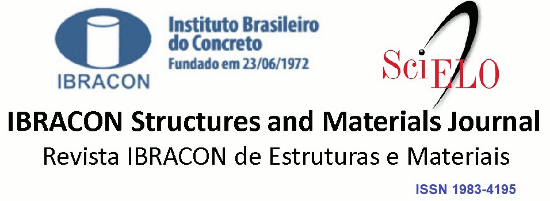Abstract
In many countries of Latin America, Jointed Plain Concrete Pavements (JPCP) are designed using the American Association of State Highway and Transportation Officials (AASHTO) or the Portland Cement Association (PCA) methods, none of which take explicitly into account the environmental conditions of the specific region where a JPCP will be built. It is well known that temperature gradients across the thickness of concrete slabs produce curling which can cause slabs to lose support at its corners and its center depending on the time of the day. This situation, in combination with vehicle loading, generates tensile stresses which can be significant enough to cause initial cracking and the subsequent failure of the pavement. In this research, the Finite Element (FE) package EverFE2.25 was used to study the impact of temperature gradients (calibrated to account for humidity gradients) in combination with a vehicle load (a dual wheel tandem axle of 180 kN) on the performance of a typical JPCP highway section. For the JPCP under study, the apparent increase of the tensile stresses attributable to negative local (ΔT = -18.5°C) Equivalent Temperature Gradients (ETGs) was as 5.5 times larger than the one induced by the axle when it was placed at the border of the slab and up to 8.8 times larger when it was placed at the corner of the slab. Although the apparent increase was not as high when the positive local ETGs (ΔT = +18.5°C) were used, the absolute magnitude of the stresses in combination with the vehicle load were still high enough for the pavement to fail under fatigue. Thus, local temperature gradients should be studied regionally and considered in the design of JPCP using more suitable design procedures such as the Mechanistic-Empirical design procedure.
Keywords:
concrete pavement; curling; temperature gradients; finite element analysis








